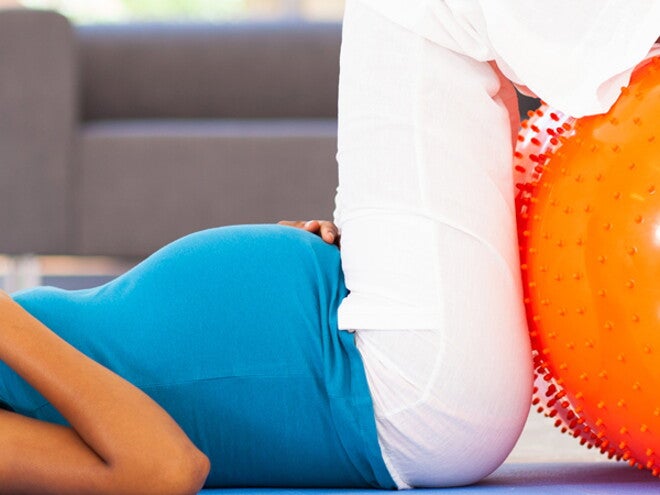
It is essential to obtain permission from your caregiver before you begin prenatal exercises.
During pregnancy your body changes and you have to appreciate and accommodate these changes. You are more vulnerable to injury during the latter part of pregnancy, so looking after and respecting your changing body is all-important. All pregnant women should increase their strength and stamina, and stay energised. Maintaining a MODERATE exercise regime is the responsible thing to do. Excessive exercise may ultimately lead to injuries that may prevent you from engaging in ANY physical activity – thus defeating the goal for which exercise is intended.
Things you should know about exercise in pregnancy
- When you exercise, or exert your body, different body systems are affected. Exercising changes hormonal activity, raises body temperature by producing more heat, activates muscles, changes the mineral and fluid balance, speeds-up metabolism and uses up stored energy reserves. This is something the body likes – it feels good. How easily it adapts to exercise depends on your age, weight, diet, health and level of fitness, as well as the type, intensity and duration of the workout you are doing. Exercise causes you to use more oxygen; therefore, you need to take in more oxygen. The more you take in, the more you burn stored fat. Your muscles and bones become denser and stronger.
- Be consistent with your workouts, especially during pregnancy. Irregular workouts can do more harm than good. Work out at least three times a week, with each session lasting a minimum of 20 minutes.
- Always listen to your body and do not over-exert yourself.
- Drink plenty of water before, during and after your workout.
- It is important to warm-up slowly before a work out and cool down afterwards.
- Rest and relax after exercising.
- You should be able to breathe easily while you exercise. Do not become breathless for any length of time. Slow down and drop your arms if this happens.
- Breathing awareness, constant self-monitoring and keeping well hydrated are all very important.
- Tone down on high-impact classes and only attend classes that are slower-paced and mild-impact. Keep one foot on the ground at all times. This will prevent joint strain and jarring, as well as prevent pelvic floor discomfort.
- Sit-ups or crunch type exercises are not recommended after the fourth month of pregnancy. Modified exercises, such as pelvic tilts or cat stretches, are just as beneficial and effective, if done correctly.


















